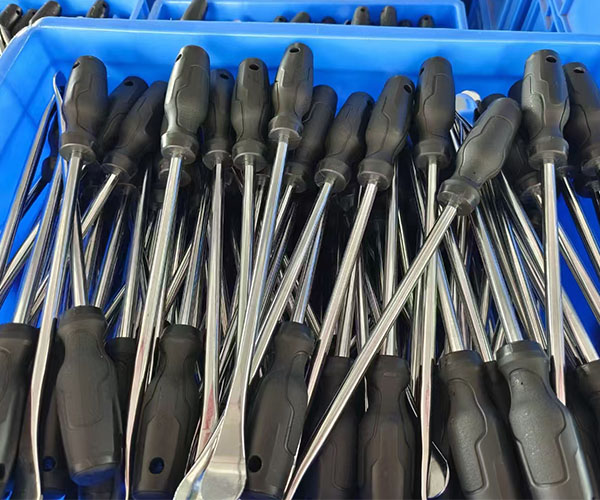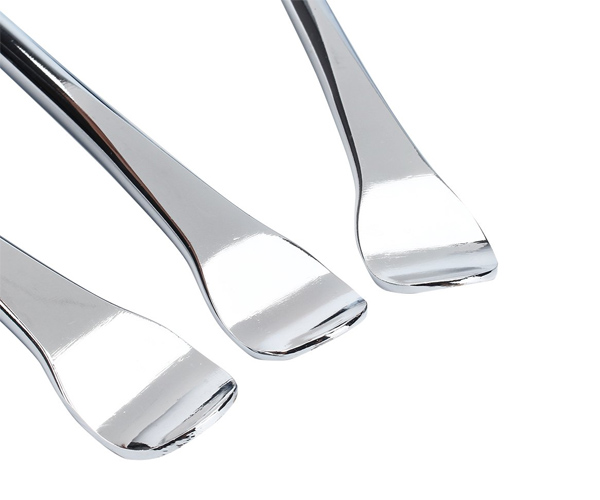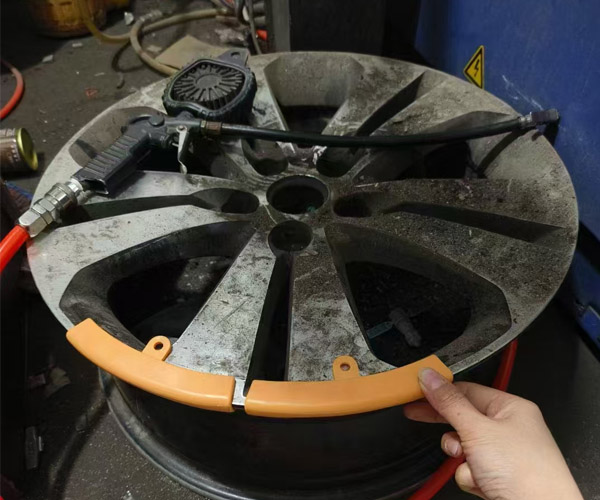Introduction
What Are Tire Spoons and Levers?
Tire spoons and levers are essential tools for anyone involved in tire maintenance, whether you’re a professional mechanic or a dedicated DIY enthusiast. These tools are designed to help you remove and install tires with ease, particularly when working with tubeless tires or those with tight-fitting rims. Tire spoons and levers provide the leverage needed to pry tires off rims and to assist in placing them back on without causing damage.
Tire spoons typically feature a curved, pointed end that helps slide between the tire and the rim, while levers are often flatter and designed to work in conjunction with other tools. Tire Spoons and Levers manufacturers produce these tools in various sizes and materials to cater to different types of vehicles, from bicycles to motorcycles and cars.
Why Are They Essential for Tire Maintenance?
The ultimate purpose of tire spoons and levers is to simplify the process of tire changes and repairs. Without these tools, removing or installing tires could become a cumbersome and potentially damaging task. They reduce the risk of damaging the rim or tire bead, which can lead to costly repairs or replacements. By leveraging the right tools, you can ensure a smooth and efficient tire change, whether you’re handling a simple bike tire or a more complex car or motorcycle tire.
Section 1: Types of Tire Spoons and Levers
Basic Types
Tire Spoons
Tire spoons, often referred to as tire iron spoons, are specialized tools designed for tire maintenance. They are characterized by their elongated, curved shape with one or both ends tapered. This design allows the user to get under the tire bead and lift it over the rim without exerting excessive force. They are particularly useful for bicycle and motorcycle tires where space is limited. Tire spoons come in different lengths and profiles, allowing for flexibility in various tire sizes and types.

Tire Levers
Tire levers, on the other hand, are more straightforward in design but are equally important. They are typically flat and feature a hooked end that can be inserted between the tire and rim. Tire levers are often used in conjunction with other levers or tools to remove or install tires. The lever action helps to gradually lift the tire bead over the rim, making the process less strenuous. Tire lever tools are commonly used in automotive and motorcycle repair due to their effectiveness in handling tougher, more rigid tires.
Material Variations
Steel vs. Plastic
The material of tire spoons and levers significantly impacts their durability and effectiveness. Steel is a popular choice for professional-grade tools due to its strength and longevity. Steel tire spoons and levers are less likely to bend or break under heavy use, making them ideal for high-stress situations. They also typically feature a more robust design, which helps in handling tougher tires.
Plastic, on the other hand, is often used for DIY and casual use. Plastic tire levers and spoons are lighter and less expensive, making them suitable for occasional tire changes. They are less likely to scratch or damage rims but may not be as durable as their steel counterparts. Many plastic models are designed with a composite material to offer a balance of strength and flexibility.
Composite Materials
Some tire spoons and levers are made from composite materials that combine the benefits of both plastic and metal. These tools are designed to offer the strength of metal with the lightweight and non-marring properties of plastic. Composite materials are often used in high-quality tire tools to provide enhanced performance without the risk of damaging rims or tires.
Section 2: Key Features to Consider
Size and Shape
Impact on Usability
The size and shape of tire spoons and levers play a critical role in their usability. Larger tire spoons provide more leverage and are better suited for heavy-duty applications, such as car or motorcycle tires. However, they can be cumbersome to use on smaller tires. Conversely, smaller spoons and levers are easier to maneuver but may require more effort to handle tougher tires.
Ideal Dimensions
For bicycle tires, shorter and narrower tire spoons are often preferred to fit the limited space around the rim. For automotive or motorcycle tires, longer spoons provide better leverage and are more effective in dealing with the added rigidity of larger tires. Choosing the right size ensures that you can perform tire changes efficiently without causing damage.
Handle Design
Different Handle Designs
Handle design is crucial for comfort and control during tire changes. Ergonomic handles with cushioned grips provide better comfort and reduce hand fatigue during prolonged use. Some handles are designed with a non-slip surface to ensure a secure grip even in oily or wet conditions.

Improving Grip and Control
A well-designed handle improves grip and control, making it easier to maneuver the tool and apply the necessary force. Handles with a larger diameter or contoured shape can provide a more comfortable grip, reducing the risk of slipping and increasing precision during use.
Edge Design
Importance of Edge Sharpness
The edge design of tire spoons and levers affects their ability to effectively engage with the tire and rim. A sharp, well-defined edge is essential for easily sliding between the tire and rim, reducing the effort required to remove or install the tire. However, too sharp an edge can also increase the risk of damaging the rim or tire bead.
Curvature and Performance
The curvature of the edge plays a significant role in the tool’s performance. A gentle curve allows for smoother operation and better leverage, while a more aggressive curve can provide more force but may be harder to control. The right curvature helps in efficiently handling different types of tires without causing damage.
Section 3: Choosing the Right Tire Spoon or Lever
For Different Tire Types
Bicycle Tires vs. Car Tires
When choosing tire spoons and levers, it’s essential to consider the type of tire you will be working with. Bicycle tires typically require smaller, more precise tools due to their narrower rims and lighter construction. For bicycle tires, a set of tire levers with a smooth, thin edge is ideal.
Car tires, on the other hand, are more robust and require more substantial tools. Larger tire spoons with a stronger build are necessary to handle the additional force needed to remove or install car tires. Tire Spoons and Levers manufacturers offer tools specifically designed for automotive applications, ensuring that you have the right equipment for the job.
Different Rim Types
The type of rim also impacts the choice of tire tools. Metal rims are generally more durable and can withstand more force, but they may require tools with specific edge designs to prevent damage. Alloy rims, while lighter, can be more prone to scratching or denting, so using tools with non-marring edges or protective coatings is crucial.
Professional vs. DIY Use
Features for Professional Mechanics
Professional mechanics often require high-quality, durable tools capable of withstanding frequent use. Steel tire spoons and levers with ergonomic handles and reinforced edges are ideal for professionals who deal with a wide range of tire sizes and types. These tools are designed to offer reliability and efficiency, ensuring that tire changes are completed quickly and effectively.
Features for DIY Users
For DIY users, cost-effective and easy-to-use tools are typically sufficient. Plastic or composite tire levers and spoons are often suitable for occasional use. These tools should still provide ease of use and functionality but may not need the same level of durability or advanced features as professional-grade tools.
Section 4: How to Use Tire Spoons and Levers
Basic Techniques
Using a Tire Spoon
To use a tire spoon effectively, start by inserting the spoon’s tapered end between the tire bead and rim. Gently pry the tire bead over the rim while rotating the spoon around the rim’s circumference. This technique helps to gradually lift the tire without causing undue stress on the tire or rim.
Using a Tire Lever
Tire levers work similarly to tire spoons but are typically used in a set. Insert one lever between the tire and rim, then use additional levers to gradually lift the tire bead over the rim. Tire levers often come with a hook or notch that helps to hold the bead in place while you work.
Best Practices
Avoiding Damage
To avoid damaging the tire or rim, always use the tools gently and avoid excessive force. Ensure that the tool is properly positioned before applying pressure. Using rim protectors alongside tire spoons and levers can prevent scratches and dents on the rim.
Preventing Injury
Proper handling of tire spoons and levers is crucial for preventing injury. Wear gloves to protect your hands and ensure that you have a stable working surface. Always use the tools in a controlled manner to avoid slips and accidents.
Section 5: Maintenance and Care
Cleaning and Storage
Proper Cleaning
After each use, clean tire spoons and levers to remove any dirt, debris, or residue. Use a mild detergent and water to wash the tools, and dry them thoroughly to prevent rust or corrosion. For plastic or composite tools, avoid using harsh chemicals that could damage the material.
Best Storage Practices
Store tire spoons and levers in a dry, cool place to prevent damage. Avoid exposing the tools to extreme temperatures or moisture, as these conditions can degrade their performance and longevity. Consider using a tool organizer or pouch to keep the tools together and prevent misplacement.

Inspection and Replacement
Inspecting for Wear and Tear
Regularly inspect tire spoons and levers for signs of wear or damage. Look for bent edges, cracks, or any deformation that could affect the tool’s performance. Address any issues promptly to ensure the tools remain effective and safe to use.
When to Replace
If you notice significant wear or damage that cannot be repaired, it’s time to replace the tool. Using damaged tools can lead to inefficient performance and potential damage to tires or rims. Investing in high-quality replacement tools ensures that you maintain effective tire maintenance practices.
Section 6: Troubleshooting Common Issues
Tool Slippage
Causes of Slippage
Tool slippage during use can occur due to several factors, including improper tool size, worn edges, or inadequate grip. Ensure that the tool is correctly positioned and that you are applying even pressure to prevent slippage.
Resolving and Preventing Slippage
To prevent slippage, choose tools with a suitable size and design for the specific tire and rim you’re working with. Regularly inspect and maintain the tools to ensure they remain in good condition. Using rim protectors can also help reduce the risk of slippage by providing a more secure grip.
Damage to Tires or Rims
Common Causes
Damage to tires or rims can occur if the tools are used improperly or if they are not maintained correctly. Common causes include using excessive force, using damaged tools, or failing to use protective accessories.
Avoiding Damage
To avoid damaging tires or rims, follow best practices for tool usage and maintenance. Always use the tools gently and ensure that they are in good condition. Incorporating protective accessories, such as rim protectors, can also help prevent damage.
Section 7: Comparing Brands and Models
Top Brands and Models
Overview of Popular Brands
Several reputable brands manufacture high-quality tire spoons and levers. Brands like [Walmart store], [Amazon’store], and [ NEIKO 20601A ] are known for their durability and performance. Each brand offers various models designed for different applications and user preferences.
Cost vs. Quality
Assessing Value
When evaluating tire spoons and levers, consider the balance between cost and quality. Higher-priced tools often come with advanced features and better durability, but this doesn’t always mean they are necessary for all users. Assess your needs and budget to find the best value options.
Best Value Options
For those looking for high-quality tools at a reasonable price, consider brands that offer a good balance between cost and performance. Tools that provide a combination of durability, ease of use, and reasonable pricing offer the best value for both professional and DIY use.
Section 8: Expert Tips and Recommendations
Professional Insights
Tips from Industry Experts
Industry experts recommend investing in high-quality tools that suit your specific needs. They emphasize the importance of proper tool maintenance and suggest regularly inspecting tools for signs of wear. Experts also advise using rim protectors and following best practices to prevent damage during tire changes.
User Experiences
Common Feedback
User experiences with tire spoons and levers highlight the importance of choosing the right tool for the job. Many users appreciate tools with ergonomic handles and non-marring edges, which enhance comfort and protect rims. Feedback also suggests that having a set of various-sized tools can be beneficial for handling different tire types and sizes.

Conclusion
Summary of Key Points
In summary, tire spoons and levers are crucial tools for effective tire maintenance. Understanding the different types, materials, and features of these tools ensures that you can select the right equipment for your needs. Proper usage, maintenance, and care of tire spoons and levers contribute to efficient and safe tire changes.
Final Recommendations
Investing in high-quality tire spoons and levers is essential for both professional mechanics and DIY enthusiasts. Choose tools that match your specific tire and rim types, and always follow best practices for usage and maintenance. By selecting the right tools and taking care of them properly, you can ensure smooth and efficient tire changes, avoiding unnecessary damage and extending the life of your equipment.
Additional Resources
Links to Related Articles
- Guide to Tire Maintenance: Essential Tools and Techniques
- How to Choose the Best Tire Repair Kit for Your Vehicle
- Understanding Rim Protectors: Why They Matter
Where to Buy
For purchasing high-quality tire spoons and levers, consider large qty and reputable manufacturers and suppliers, Pls feel free contact with KOLARWIN TOOLS directly~






